PUBHLTH Courses
PUBHLTH200: Health and Society: Introduction to Public Health
- Undergraduate level
- Residential
- Fall, Winter term(s) for residential students;
- 4 credit hour(s) for residential students;
- Instructor(s): Emily Youatt (Residential);
- Prerequisites: none
- Advisory Prerequisites: Introductory chemistry lecture and introductory biology lecture.
- Description:
This course is intended to serve as an introduction to the major issues of public health with a focus on the United States, although global health issues are considered as well. We will examine what those issues are, what determines them, and how they can be altered. As a survey of the entire field of public health, the course provides a broad overview for students wishing no more than an introduction to the field, as well as good grounding for students who wish to pursue additional coursework in public health.
The winter term offering is a blended learning course. It combines online content and activities with face-to-face learning.
- Learning Objectives: To give undergraduates a good understanding of what is really important in public health, what determines health, and how society influences health.
- Syllabus for PUBHLTH200
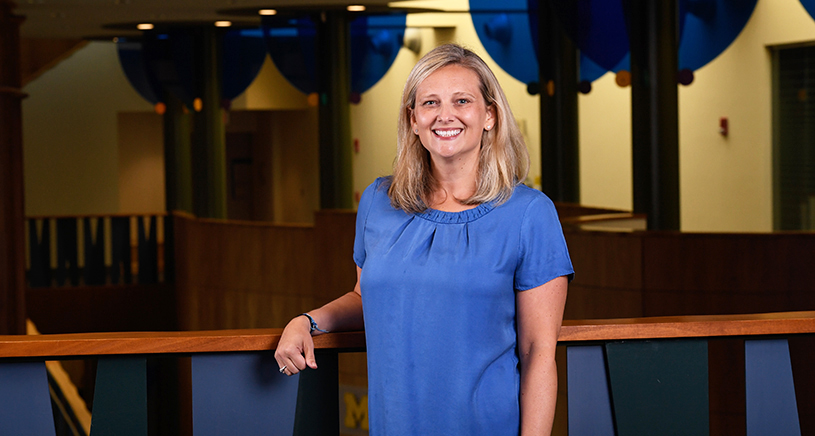
PUBHLTH250: On Purpose: Designing and Living a Big Life
- Undergraduate level
- Residential
- Fall term(s) for residential students;
- 3 credit hour(s) for residential students;
- Instructor(s): Vic Strecher (Residential);
- Prerequisites: None
- Description: A "purpose in life" refers to goals directed toward things that matter most in one's life. Living to a purpose greater than one's self has been viewed by philosophers as essential to health and well-being. This course examines the philosophy and science of purpose and purposeful living.
- Learning Objectives: This course will improve specific understanding of: 1) The purpose in life concept and related concepts (e.g., well-being, resilience, emotional self-regulation, self-affirmation, and self-transcendence) 2) Research related to the above concepts through behavioral, epidemiological, biological, and neuroscience studies. 3) Potential uses of purpose in life and related concepts for interventions designed to improve behavioral, health and well-being outcomes. 4) Personal approaches and skills relevant to self-change using design thinking and self-regulatory strategies (e.g., mindfulness, sleep, creativity).
- This course is cross-listed with TBD in the LSA department.
- Syllabus for PUBHLTH250

PUBHLTH300: Behavioral And Social Science Foundations In Public Health
- Undergraduate level
- Residential
- Fall term(s) for residential students;
- 3 credit hour(s) for residential students;
- Instructor(s): Vic Strecher (Residential);
- Prerequisites: None
- Description: This course provides an introduction to the behavioral and social science factors that influence health and disease, with an emphasis on relevant knowledge for helping individuals make better health-related decisions and changes in their lives. The course explores these factors from the individual to the societal level.
- Syllabus for PUBHLTH300

PUBHLTH305: The Environment And Human Health
- Undergraduate level
- Residential
- Winter term(s) for residential students;
- 4 credit hour(s) for residential students;
- Instructor(s): Richard Neitzel (Residential);
- Prerequisites: None
- Description: This course introduces major issues of environmental health science. We will examine what those issues are, what determines them, and how they can be altered. The course provides an overview for students who want an introduction to environmental health as well as students planning to pursue additional environmental health coursework.
- Syllabus for PUBHLTH305
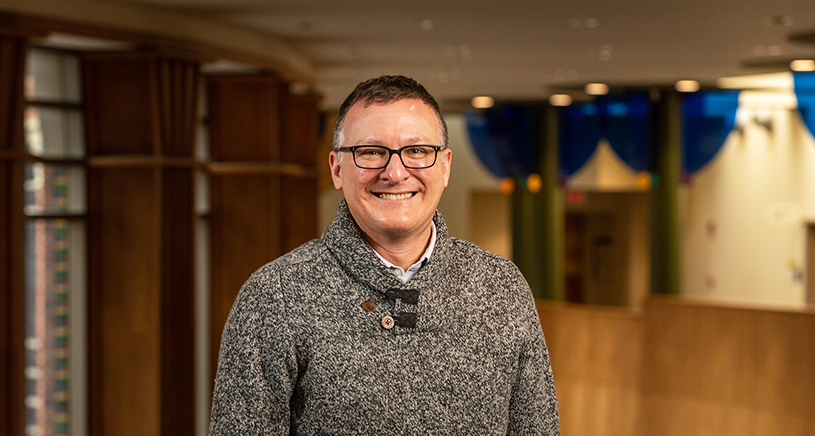
PUBHLTH306: Practical Tools for Conducting Public Health Research
- Undergraduate level
- Residential
- Winter term(s) for residential students;
- 3 credit hour(s) for residential students;
- Instructor(s): David Ifeolu (Residential);
- Offered Annually
- Prerequisites: None
- Description: This course provides students with fundamental principles of research methodologies relevant to public health research. We will review a range of methodologies, including randomized controlled trials, observational studies, and mixed-method approaches. We will develop enhanced capacity to understand and critically appraise data from scientific studies.
- Learning Objectives: 1. Acquire a knowledge base of research methodologies used in public health research 2. Become a critical consumer of public health research and interventions 3. Explain the role of quantitative and qualitative methods and sciences in describing and assessing a populations health 4. Explain the critical importance of evidence in advancing public health knowledge 5. Apply methodological principles toward planning public health research
- Syllabus for PUBHLTH306
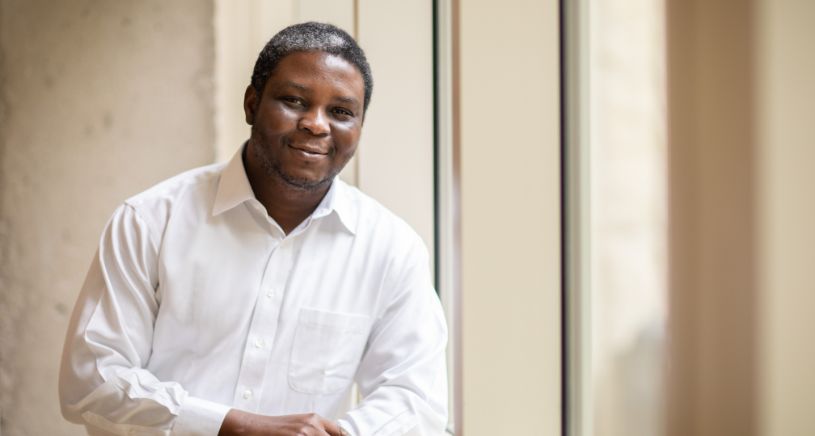
PUBHLTH308: Black American Health: A Focus on Children, Families, and Communities
- Undergraduate level
- Residential
- Winter term(s) for residential students;
- 3 credit hour(s) for residential students;
- Instructor(s): Staff (Residential);
- Not offered 2024-2025
- Prerequisites: none
- Advisory Prerequisites: PUBHLTH 200
- Description: Given persistent challenges to Black American health in the US, this course explores fundamental systems aiding to and robust strengths resisting against health inequalities. Taking a culturally-specific approach to understanding lived experiences of Black Americans, we examine ways in which systems adapt to and must change for optimal health development.
- Learning Objectives: 1. To explore the mental and physical health trajectories of Black youth. 2. To understand how familial, community, and system-level factors impact the well-being of Black youth. 3. To consider (e.g., discover, discuss, and/or develop) effective interventions for Black children, families, and communities.
- Syllabus for PUBHLTH308
PUBHLTH309: Hunger in America: Building Skills to Feed Communities
- Undergraduate level
- Residential
- Winter term(s) for residential students;
- 3 credit hour(s) for residential students;
- Instructor(s): Kate Bauer, Susan Aaronson, (Residential);
- Last offered Winter 2022
- Not offered 2024-2025
- Prerequisites: None
- Advisory Prerequisites: None
- Description: Food insecurity, or a lack of consistent access to enough food for an active, healthy life, affects 1 in 8 Americans, and nearly 1 in 3 University of Michigan students. Food insecurity is caused by the intersection of a wide range of factors, from personal cooking skills to neighborhood food access to federal food policies. For this reason, fighting food insecurity in the US requires advocates with diverse skills, knowledge, and perspectives working together. This course seeks to provide students at the University of Michigan with these skills, knowledge, and perspectives, allowing them to become leaders to improve their own health and wellbeing and that of their communities and nationwide. To accomplish this, the course will integrate community visits; in-classroom, hands-on activities; and instructor-guided seminars to help students understand the experience and impacts of food insecurity across critical life stages of development (children, young adults, seniors).
- Learning Objectives: Identify the relationships between social, economic, community, and personal circumstances that contribute to food insecurity. (Competency 1) Describe how food insecurity impacts social, physical, mental, and intellectual wellbeing. (Competency 1) Understand the role of community-based resources in combating food insecurity. (Competency 1) Understand the role that state and federal nutrition assistance programs have in addressing food insecurity and mitigating impacts of food insecurity. (Competency 1) Design nutritionally-adequate and financially-feasible menus for vulnerable individuals and families. (Competency 2) Demonstrate ability to access and purchase low-cost, nutritionally adequate food that aligns with federal food assistance requirements. (Competency 2) Demonstrate ability to prepare basic, affordable, socially-acceptable and nutritionally-balanced meals. (Competency 2)
- Syllabus for PUBHLTH309
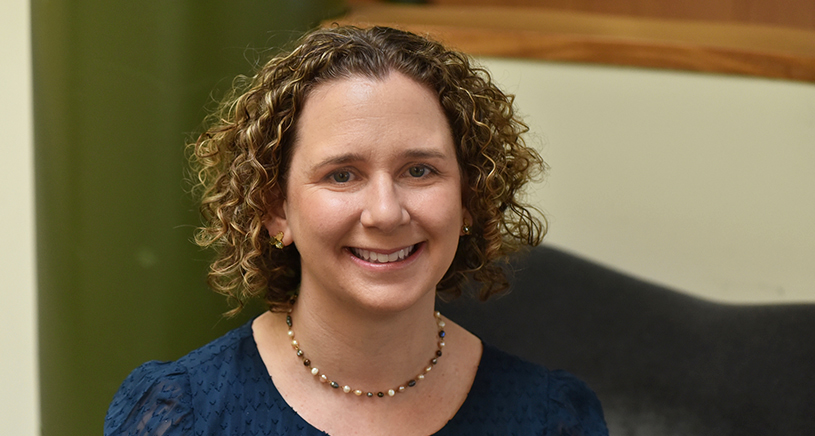

PUBHLTH310: Nutrition in the life cycle
- Undergraduate level
- Residential
- Winter term(s) for residential students;
- 3 credit hour(s) for residential students;
- Instructor(s): Olivia Anderson (Residential);
- Prerequisites: None
- Advisory Prerequisites: Introductory chemistry lecture, Introductory biology lecture
- Description: Nutrition in the Life Cycle will cover nutritional needs of individuals during critical stages of development. Students will learn about the biological basis for nutritional requirements in normal development and maintaining health in adulthood. Consequences of over- and under-nutrition and how to identify and address these issues will be discussed.
- This course is cross-listed with A NUTR 500-level course.
- Syllabus for PUBHLTH310

PUBHLTH311: Introduction to Public Health Genetics
- Undergraduate level
- Residential
- Fall term(s) for residential students;
- 3 credit hour(s) for residential students;
- Instructor(s): Kelly Bakulski (Residential);
- Prerequisites: None
- Description: Course designed for those with limited exposure to biology who are interested in human genetics. Will include basics of genetics at both the molecular and population level, plus some ethical, legal, and social implications of genetics research will be examined. Examples relevant to public health will be emphasized.
- Syllabus for PUBHLTH311
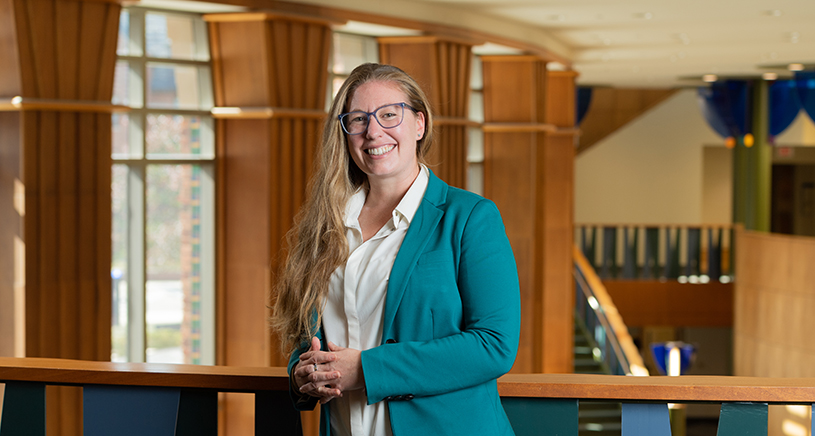
PUBHLTH313: LGBTQ+ Health Promotion: Local and Global Strategies
- Undergraduate level
- Residential
- Winter term(s) for residential students;
- 3 credit hour(s) for residential students;
- Instructor(s): Gary Harper (Residential);
- Prerequisites: None
- Advisory Prerequisites: PUBHLTH 360
- Description: This skills-based course is focused on providing students with the background, knowledge, skills, and experience needed to create a range of LGBTQ+ health promotion products/materials, programs/interventions, and policies/structural change strategies for diverse populations in multiple settings - including strategies used in local U.S. settings and in global settings. Students will explore and understand health concerns experienced by LGBTQ+ people and communities, and examine the range of LGBTQ+ specific social determinants of health and health inequities. LGBTQ+ health promotion strategies that are delivered at multiple socioecological levels (i.e., individual, interpersonal, organizational, community, and structural/policy) will be reviewed and analyzed in order to explore benefits and challenges of each. Students will then critically analyze existing LGBTQ+ health promotion materials and products (both local and global); interventions and programs; and health policies and other structural change strategies. They will also produce their own LGBTQ+ health promotion product or material; concept sheet for the development of a new LGBTQ+ health promotion intervention or program; and LGBTQ+ specific health policy brief or fact sheet. Finally, students will work with a global LGBTQ+ focused community-based organization (CBO) to develop and produce an LGBTQ+ health promotion product, program concept, or policy brief to be used by the CBO.
- Learning Objectives: By the end of this course students should be able to: -Describe common health concerns experienced by LGBTQ+ people and communities in both local and global communities. -Describe a range of LGBTQ+-specific social determinants of health and health inequities. -Compare and contrast existing local and global LGBTQ+ health promotion strategies delivered at multiple socioecological levels, including individual, interpersonal, organizational, community, and structural/policy. -Critically analyze existing LGBTQ+ health promotion materials and products, and develop such materials/products that can be used in both local and global settings. -Critically analyze existing LGBTQ+ health promotion interventions/programs, and develop a concept sheet for the development of a new intervention/program. -Critically analyze existing LGBTQ+ health policies and other structural change strategies, and develop a health policy brief or fact sheet. -Work with a global community-based organization (CBO) to develop and produce an LGBTQ+ health promotion product, program concept, or policy brief to be used by the CBO.
- Syllabus for PUBHLTH313

PUBHLTH314: Public Health in U.S. Popular Culture
- Undergraduate level
- Residential
- Winter term(s) for residential students;
- 2 credit hour(s) for residential students;
- Instructor(s): Emily Youatt (Residential);
- Prerequisites: None
- Advisory Prerequisites: PUBHLTH 200
- Description: Public health has a public relations problem: it is under appreciated, underfunded, and - when working well - its contributions to population health are often invisible. Yet, public health issues engage political, economic, philosophical, moral, and religious questions that are universally - and sometimes personally -- relevant. Using the lens of popular culture, we will critically examine public health history, concepts, and contemporary challenges. In doing so, we will explore diverse perspectives and experiences, make connections between the past and present, and develop greater empathy for the factors shaping people's lives and influencing their health.
- Learning Objectives: By the end of this course students should be able to: 1. Identify public health concepts, themes, and challenges in popular culture texts. 2. Analyze the roles of setting (time and place), characters, narrative structure, and medium in portraying public health issues. 3. 3. Critique the ways assigned texts represent race, ethnicity, class, gender, sexual orientation, nativity status, and other social identities, and, when relevant the intersections between these representations and key public health issues. 4. Differentiate the contributions of academic versus popular culture texts in understanding public health issues. 5. Facilitate an effective, inclusive group discussion. 6. Reflect on how your own understanding of a public health issue (or those affected by it) changes based on viewing it through a popular culture text.
- Syllabus for PUBHLTH314

PUBHLTH318: Food Literacy for All
- Undergraduate level
- Residential
- Winter term(s) for residential students;
- 2 credit hour(s) for residential students;
- Instructor(s): Staff (Residential);
- Prerequisites: None
- Advisory Prerequisites: None
- Description: This course offers a unique opportunity for students to gain an interdisciplinary overview of crises and opportunities in today's food system through a weekly lecture series bringing high-profile speakers to campus from diverse sectors: academia, grassroots movements, public health, farming, and more. Designed as an academic-community partnership, the course is led by a UM faculty member (Leung) with a leader in food justice in Detroit (Hebron), along with the program manager of the UM Sustainable Food Systems Initiative (Shapiro).
- Learning Objectives: 1) Describe the term "food system" and influencing factors 2) Discuss how food systems impact public and environmental health 3) Describe strategies to promote health equity within local and national food systems 4) Propose opportunities for improving the food system and the social and environmental levels
- This course is cross-listed with EAS 639 ENVIRON 314 NUR518 (pending) in the SEAS, LSA Program in the Environment, SPH Nutritional Sciences department.
PUBHLTH320: The History of Racism in the U.S. Healthcare System
- Undergraduate level
- Residential
- Fall term(s) for residential students;
- 3 credit hour(s) for residential students;
- Instructor(s): Lewis Morgenstern (Residential);
- Prerequisites: None
- Description: This class will trace the history of the U.S. healthcare system from post-civil war to the present, and how racism shaped an unfair system. The history is troubling and continues today with efforts to repeal the ACA, and to continue as a country that does not offer universal healthcare.
- Learning Objectives: Students taking this course are expected to learn about: 1. The social and economic factors resulting from racism that affect healthcare organization in the U.S. 2. The history of the post-civil war U.S. healthcare system and racial influences on its organization. 3. The effects of a racist healthcare system on the health of U.S. citizens.
- Syllabus for PUBHLTH320

PUBHLTH321: Eating Disorders Prevention & Treatment
- Undergraduate level
- Residential
- Fall term(s) for residential students;
- 3 credit hour(s) for residential students;
- Instructor(s): Kendrin Sonneville (Residential);
- Prerequisites: None
- Advisory Prerequisites: STATS250; this is already required for PH majors
- Description: This course is designed to introduce undergraduate students to eating disorders using a public health framework. Students will be exposed to key concepts and controversies in the eating disorders field.
- Learning Objectives: Discuss the science of primary, secondary and tertiary prevention in population health, including health promotion, screening, etc. Explain biological and genetic factors that affect a population’s health Explain behavioral and psychological factors that affect a population’s health
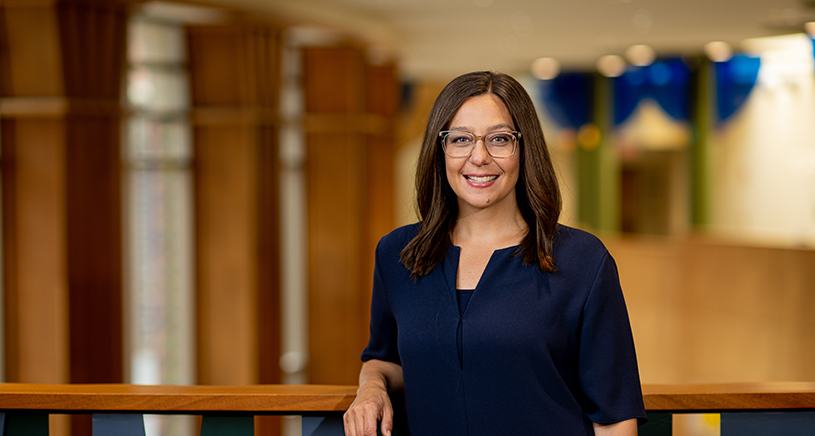
PUBHLTH323: Food Security & Food Assistance In The U.s.
- Undergraduate level
- Residential
- Fall term(s) for residential students;
- 3 credit hour(s) for residential students;
- Instructor(s): Jennifer Garner (Residential);
- Prerequisites: None
- Advisory Prerequisites: N/A
- Description: Students will: grapple with the complex etiology and consequences of food insecurity in the U.S., including the historical roots of current programming; interrogate current approaches to addressing it at the local, state, and federal levels; and synthesize the state of the science toward policy proposals for strategic programmatic refinements.
- Learning Objectives: A. Appreciate the complex set of factors that influence the risk for and experience of food insecurity in the United States by… 1. Reflecting on their and their family’s food-related traditions, practices, and routines and any related privileges or lack thereof, and 2. Developing a conceptual map of factors known to impact risk of or be associated with food insecurity; B. Know the reach, function, and impacts of current non-profit and federal food assistance programs by… 3. Defining the current eligibility criteria and key provisions of major federal and non-profit food assistance programs, 4. Identifying purported/hypothesized impacts of food assistance programming for individuals, households, communities, and the economy, and 5. Analyzing known dietary, health, social, and economic food assistance program impacts based on the available peer-reviewed literature; C. Understand the historical events that informed current U.S. food assistance programming efforts by… 6. Examining the political, social, and economic circumstances surrounding the origin of a federal food assistance program, 7. Describing the ways in which the reach, provisions, and impacts of a federal food assistance program have changed over time, and 8. Comparing contemporary and historical controversies related to the private and public administration of food assistance benefits, D. Recognize the strengths, limitations, and potential of various food assistance approaches by… 9. Assessing a selected food assistance program's strengths and limitations, and 10. Proposing a program modification that would be reasonably expected to expand reach, facilitate efficiencies, or improve program outcomes.

PUBHLTH326: The U.s. Healthcare System
- Undergraduate level
- Residential
- Winter term(s) for residential students;
- 2 credit hour(s) for residential students;
- Instructor(s): Staff (Residential);
- Prerequisites: None
- Advisory Prerequisites: PUBHLTH 200
- Description: This course provides an overview of the current U.S. Health Care System with the emphasis on the components and challenges of the Organization, Delivery, and Financing of health care today.
- Learning Objectives: Upon successfully completing this course, the student will be able to: a. Describe the major stages in the development of healthcare delivery in the U.S. b. Describe the major economic, social and political stages in the development of Health Care Delivery c. Describe the Current U.S. Health Care Delivery System and Challenges facing Care Providers. d. Describe the current financing opportunities and challenges in health care delivery. e. Assess and describe the current challenges in the US Health Care Delivery system within the context of Personal Care Delivery: cost, quality and access to care.
PUBHLTH333: Emerging Issues In Public Health
- Learn more about each section of the Public Health Topics Course
- Undergraduate level
- Residential
- Fall, Winter term(s) for residential students;
- 1-4 credit hour(s) for residential students;
- Instructor(s): Staff (Residential);
- Prerequisites: None
- Description: This course will be used by faculty members to teach special or emerging topics in Public Health. The specific material and format will vary by semester and instructor.
- Learning Objectives: Learning objectives will vary by topic and instructor.
PUBHLTH350: Global Public Health: Challenges and Transformations
- Undergraduate level
- Residential
- Winter term(s) for residential students;
- 4 credit hour(s) for residential students;
- Instructor(s): Abram Wagner (Residential);
- Prerequisites: None
- Description: This course integrates foundational principles of political science and international studies in an exploration of epidemiological transitions, goal-setting in international organizations, and other global public health challenges. Students will investigate health disparities between countries and between socioeconomic groups within a country, and will discuss key communicable and non-communicable health conditions.
- Syllabus for PUBHLTH350

PUBHLTH357: Behavioral And Social Science Research In Hiv: Methods And Perspectives For Sexual & Gender Minority Communities
- Undergraduate level
- Residential
- Fall, Winter term(s) for residential students;
- 3 credit hour(s) for residential students;
- Instructor(s): Staff (Residential);
- Prerequisites: None
- Description: This intensive course is exclusively for SOAR students (Student Opportunities for AIDS/HIV Research). Rising juniors enrolled at the Ann Arbor campus are eligible to apply to participate in the SOAR program. During their junior and senior years, students will complete a two-year-long research experiences and a short-term summer research experience or internship. Learn more about the program and apply at irwg.umich.edu/soar
- Learning Objectives: Class sessions will cover interdisciplinary learning about HIV and sexual and gender minority health populations, with a focus on theoretical and methodological frameworks such as intersectionality and HIV, critical race theory and HIV, queer theory and HIV, and minority stress theory and HIV. Specific sections of the course will include interdisciplinary explorations of health inequities and social determinants of health, especially as they apply to HIV, ethnic/racial minorities, sexual and gender minorities and women. Research ethics will be covered in these meetings as well, deeply situated in a historical study of events such as the Tuskegee experiments, J. Marion Sim’s gynecological experimentation on enslaved Black women, and ACT UP’s treatment activism and collaboration in the early days of the AIDS crisis.
- This course is cross-listed with WGS 377 in the College of Literature, Science, and the Arts department.
PUBHLTH360: Community, Culture, and Social Justice (CCSJ) in Public Health
- Undergraduate level
- Residential
- Fall term(s) for residential students;
- 3 credit hour(s) for residential students;
- Instructor(s): Gary Harper (Residential);
- Prerequisites: None
- Advisory Prerequisites: PUBHLTH 200
- Description: Students will explore social constructions of health, and examine the interplay of community, cultural, ethical, social, economic, environmental, political and social justice forces that shape health. Concepts of community, culture, and social justice will be explored and students will examine how these concepts can be applied to public health interventions.
- Syllabus for PUBHLTH360

PUBHLTH370: Public Health Biology and Pathophysiology
- Undergraduate level
- Residential
- Fall term(s) for residential students;
- 4 credit hour(s) for residential students;
- Instructor(s): Carrie Karvonen-Gutierrez (Residential);
- Prerequisites: None.
- Description: This course provides a foundation of biology and pathophysiology concepts necessary for the practice of public health including an evaluation of the natural history and mechanisms underlying infectious and chronic human diseases. This course will also address population-level targets for prevention and treatment of major diseases of human health.
- Syllabus for PUBHLTH370
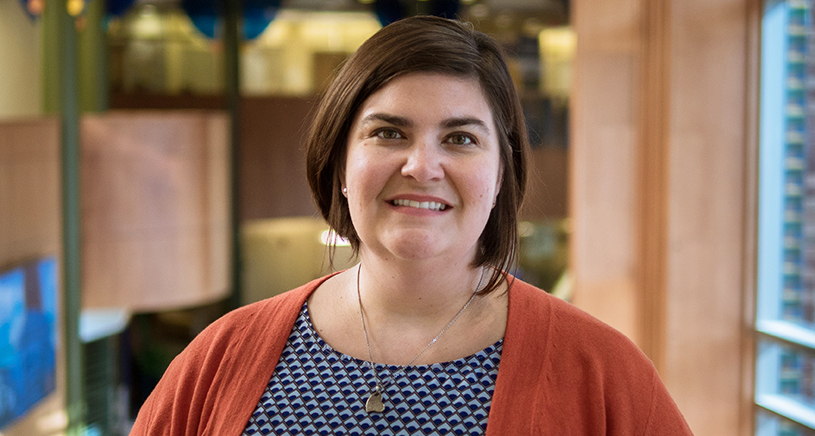
PUBHLTH380: Leadership And Teamwork: From Personal Growth To Professional Achievement
- Undergraduate level
- Residential
- Winter term(s) for residential students;
- 1 credit hour(s) for residential students;
- Instructor(s): Dani Koel (Residential);
- Prerequisites: None
- Description: PUBHLTH 380 is an intensive 7-week course that focuses on foundational leadership and teamwork skills to foster both professional and personal growth through the lens of emotional intelligence. Throughout the course, students will gain insights into diverse leadership styles and their effective application in diverse scenarios.
- Learning Objectives: 1. Identify multiple leadership styles and their applicability. 2. Understand cultural humility and inclusive leadership. 3. Understand the importance of collaboration and teamwork in leadership. 4. Identify common challenges in teamwork and strategies to overcome them. 5. Learn consensus-building and decision-making skills. 6. Develop skills to engage in difficult conversations effectively. 7. Understand the importance of continuous improvement and self-renewal. 8. Define the four key domains of emotional intelligence and its significance in leadership. - Explore self-awareness, including critical self reflection, emotional self-awareness, and accurate self-assessment. - Explore social awareness and reflect on one's social identity and its impact on leadership. - Explore self-management skills, including emotional control, stress management, empathy and listening skills. - Explore relationship management, communication styles, and conflict resolution.
PUBHLTH381: Public Health Systems: Achievements and Challenges
- Undergraduate level
- Residential
- Fall term(s) for residential students;
- 3 credit hour(s) for residential students;
- Instructor(s): Melissa Creary (Residential);
- Prerequisites: PUBHLTH 200 and Jr. or Sr. Standing OR declared PUBHLTH major
- Description: This course will provide an overview of the essential role of the public health system, which includes health care systems, government organizations and non-governmental organizations, in improving health locally and globally. The top achievements in public health will be critically examined along with current and emerging challenges and threats to human health and well-being, including health inequities. Mechanisms and measures for evaluating human health and illness will be discussed. This course will emphasize multidisciplinary and multi-sector approaches to health promotion and disease prevention.
- Syllabus for PUBHLTH381

PUBHLTH382: Population Health Determinants & Disparities
- Undergraduate level
- Residential
- Winter term(s) for residential students;
- 3 credit hour(s) for residential students;
- Instructor(s): Enrique Neblett (Residential);
- Prerequisites: PUBHLTH200
- Description: This course explores the social and environmental factors that impact disease susceptibility across populations. Students will learn of the complexities and interactions of factors that influence patterns of disease and health at multiple levels. The course will introduce key analytic frameworks and metrics for evaluating public health problems.
- Learning Objectives: 1. Define population health within the context of public health 2. Describe the importance of context in understanding population health 3. Explain the nature of health and disease at individual and societal levels 4. Identify how health is defined culturally and describe how cultural factors influence health 5. Identify key risk factors at multiple behavioral and genetic levels 6. Distinguish health disparities in relation to race, ethnicity, gender, sexual orientation, age, geographic location, and other socio-economic dimensions 7. Critically apply key concepts and analytic frameworks to address population health issues 8. Describe the role of data in assessing, describing and evaluating the complex interactions among multiple determinants of health and disease
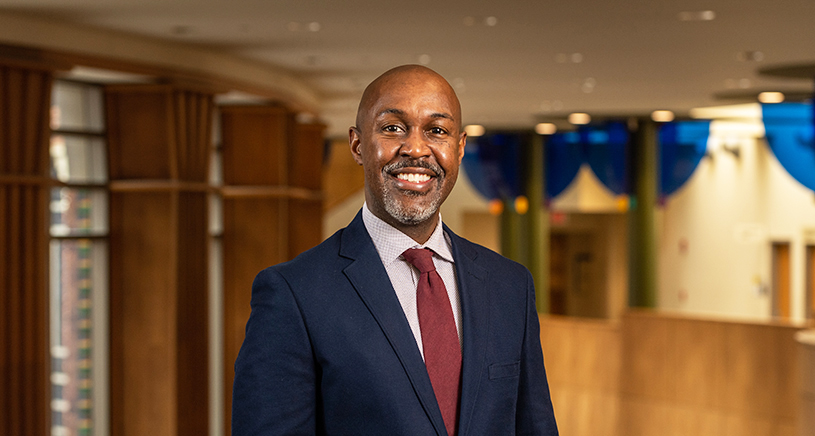
PUBHLTH383: Data Driven Solutions in Public Health
- Undergraduate level
- Residential
- Winter term(s) for residential students;
- 4 credit hour(s) for residential students;
- Instructor(s): Matt Zawistowski (Residential);
- Prerequisites: STAT250; PUBHLTH 200
- Description: This course introduces the importance of data in public health, including collection, analysis, interpretations, and dissemination. It provides examples of data used to evaluate public health decisions, policy and resource allocation. It is an introduction to biostatistical and epidemiological methods, informatics, and big data including usage, management and challenges.
- Learning Objectives: 1)Identify key strategies and methods for obtaining current public health data 2)Explain the use of basic epidemiological methods in study design and implementation to generate new data and metrics to address public health issues 3)Illustrate how analyses and results are used to inform intervention development and influence appropriate public health policies. 4)Apply statistical methods in order to describe data, make inferences and test hypotheses regarding population parameters 5)Apply results from data analyses to explore, define, identify and prioritize public health challenges and solutions
- Syllabus for PUBHLTH383
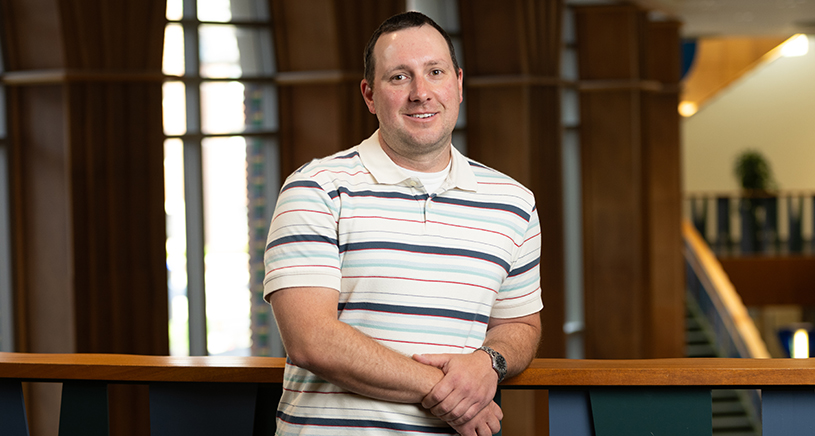
PUBHLTH384: Creating Change in Public Health
- Undergraduate level
- Residential
- Fall term(s) for residential students;
- 3 credit hour(s) for residential students;
- Instructor(s): Scott Greer, Holly Jarman, (Residential);
- Prerequisites: [PUBHLTH 200; (C- or better) & Junior or Senior Standing] or Public Health Major
- Description: This course introduces students to strategies as well as best practices and challenges in translating strategies into public health policies, programs and practices. This course provides an overview of stakeholders who create, enact, and assess health promotion strategies. Students will identify, define and evaluate strategies to address public health issues.
- Learning Objectives: 1. Explain the process for tailoring intervention messages based on the specific audiences, content and media channels 2. Discuss the legal, ethical and economic implications of public health policies and interventions 3. Describe principles of planning, implementing and evaluating public health programs and interventions 4. Compare and contrast the roles of various policy-forming bodies (agencies, organizations, governments) in public health promotion 5. Explore various conceptualizations of effectiveness with regard to public health strategies
- Syllabus for PUBHLTH384
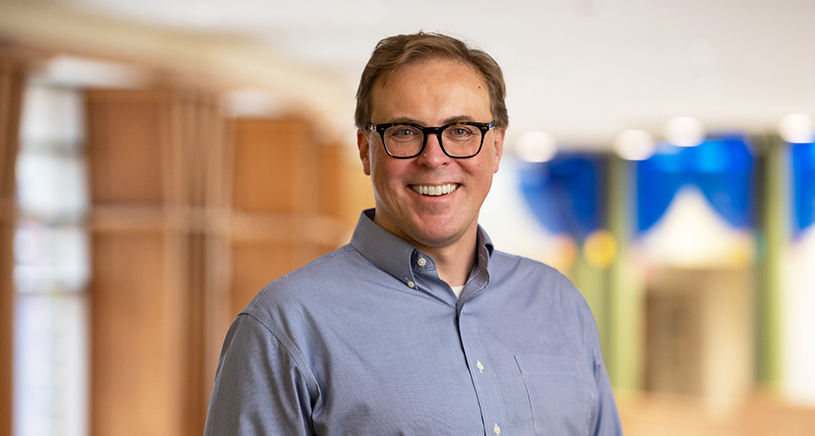
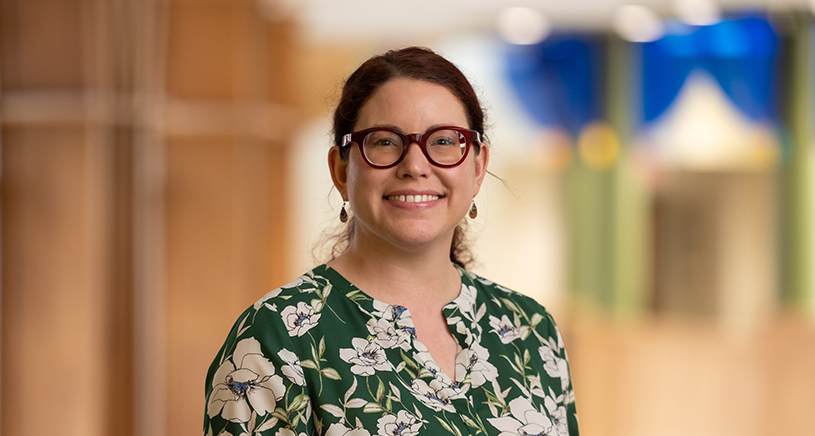
PUBHLTH401: Exploring the public health spectrum of cancer: from prevention to survivorship
- Undergraduate level
- Residential
- Fall term(s) for residential students;
- 3 credit hour(s) for residential students;
- Instructor(s): Alison Mondul (Residential);
- Prerequisites: None
- Advisory Prerequisites: PUBHLTH200, first year writing requirement
- Description: The course will review the socio-demographic magnitude of cancer in the US and globally, basic concepts of cancer biology and the causes of cancer. Major risk factors such as tobacco and obesity will be discussed. Students will be introduced to the concepts of prevention, screening, treatment, and survivorship.
- Syllabus for PUBHLTH401

PUBHLTH402: Changing Health Behaviors: What Works
- Undergraduate level
- Residential
- Winter term(s) for residential students;
- 3 credit hour(s) for residential students;
- Instructor(s): John Piette (Residential);
- Prerequisites: PUBHLTH 200
- Description: This course gives undergraduate students an introduction to how brief interventions are used to impact health behaviors and the approaches used to help people make and attain behavior-change goals. Students also gain skills in applying scientific evidence from randomized trials and systematic reviews in public health decision-making.
- Learning Objectives: 1) Know what brief behavioral interventions are and how they are delivered to address behavioral challenges 2) Know where to look for evidence supporting the effectiveness of brief interventions 3) Be able to review, interpret, and apply evidence from randomized trials, systematic reviews, and guidelines 4) Understand what types of brief interventions have the strongest evidence and for whom they work
- Syllabus for PUBHLTH402

PUBHLTH405: Social history of infectious disease
- Undergraduate level
- Residential
- Fall term(s) for residential students;
- 3 credit hour(s) for residential students;
- Instructor(s): Jonathan Zelner (Residential);
- Prerequisites: None
- Description: We will focus on five specific pathogens that have had an outsize impact on the trajectory of human health and societies: Cholera, Polio, Tuberculosis, Influenza, and HIV.
- Learning Objectives: 1. Understand the concept of infectious disease "natural history" of infection. 2. Understand and enumerate key infectious diseases in human history. 3. Understand the key social and historical mechanisms underlying the emergence and transmission of infectious diseases.
- Syllabus for PUBHLTH405
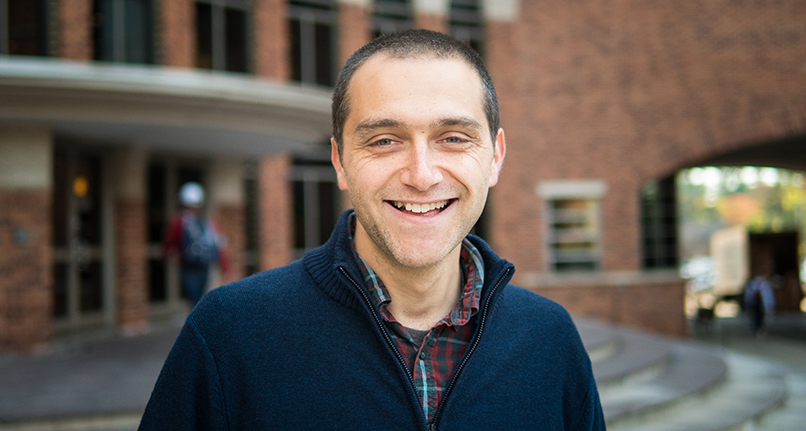
PUBHLTH407: Links between Infectious and Non-Communicable Diseases
- Undergraduate level
- Residential
- Winter term(s) for residential students;
- 3 credit hour(s) for residential students;
- Instructor(s): Zhenhua Yang (Residential);
- Prerequisites: PUBHLTH370 (or equivalent)
- Advisory Prerequisites: an introductory microbiology and immunology course or an introductory infectious disease course and an introductory non-communicable disease course.
- Description: This course introduces the students to the etiology, pathogenesis, and the evolution of epidemiology of major infectious and non-communicable diseases. It discusses the links between major infectious and non-communicable diseases, including epidemiological evidence, the underlying mechanisms, and their public health implications.
- Learning Objectives: 1. Gain an understanding of the international statistical classification of diseases and related health problems. 2. Describe the etiology, history, pathogenesis, and evolution of major infectious and non-infectious diseases in different populations. 3. Review epidemiological evidence for links between major infectious and non-communicable diseases 4. Identify methodologies required for studying links between infectious and non-communicable diseases and for exploring the underlying mechanisms of such links. 5. Discuss the public health implications of epidemiological transitions of human diseases and the infectious and non-communicable disease links.
- Syllabus for PUBHLTH407

PUBHLTH410: Making Change: Public Health Policy Advocacy in Principle and Practice
- Undergraduate level
- Residential
- Winter term(s) for residential students;
- 3 credit hour(s) for residential students;
- Instructor(s): Staff (Residential);
- Prerequisites: PUBHLTH 200
- Description: This class will provide students with skills to advocate for public health policies at all levels of government. Through lectures, class discussions, and group projects on "live" public health issues, students develop the skills to create opportunities to inform policymaking, and become more effective communicating in the policymaking environment.
- Learning Objectives: 1. Appraise the political landscape and stakeholders that are important for making policy change on a given public health topic. 2. Apply principles of policy-making, policy change theory, and policy advocacy to real life public health problems. 3. Effectively advocate for public health change at the local, state and federal level. 4. Develop strong written and verbal communication skills. 5. Define and frame public health problems in such a way that inspires policy change. 6. Analyze the legislative, administrative and judicial intervention points for policymaking and identify where to effectively target advocacy efforts. 7. Identify and evaluate advocacy strategies, such as coalition building, grassroots engagement, and paid and earned media outreach, in order to create specific advocacy campaigns. 8. Develop personal and communication skills to effectively translate and advocate for public health improvements to policymakers, the press and the public.
- Syllabus for PUBHLTH410
PUBHLTH413: Vaccines in Public Health
- Undergraduate level
- Residential
- Fall term(s) for residential students;
- 3 credit hour(s) for residential students;
- Instructor(s): Zhenhua Yang (Residential);
- Prerequisites: PUBHLTH370 or permission of the instructor
- Advisory Prerequisites: Introductory Infectious Disease Courses
- Description: This course introduces essential vaccinology, covering pre-clinical vaccine development, clinical trials, new vaccine licensing, immunization program design and evaluation. It also introduces population transmission dynamics concepts, and the impact of pathogen and human population diversity on vaccination. Recent advancements in major types of non-infectious vaccines will also be discussed.
- Learning Objectives: To gain an understanding of how new knowledge generated from epidemiological studies from different populations, basic biomedical science research, and health policy assessment, along with the development of new technology, can jointly inform and impact the development of new vaccines for the prevention of different types of diseases, including both infectious and non-infectious diseases. to be familiar with the essential steps involved in developing a new vaccine. to understand important factors that affect the efficacy, effectiveness, and the public acceptance of vaccination.
- Syllabus for PUBHLTH413

PUBHLTH414: Population Approaches to Mental Health
- Undergraduate level
- Residential
- Fall term(s) for residential students;
- 3 credit hour(s) for residential students;
- Instructor(s): Staff (Residential);
- Prerequisites: None
- Advisory Prerequisites: A grade of B or better in an introductory course in psychology/sociology and in an introductory quantitative science course (statistics, mathematics, physics, etc.).
- Description: Overview of population mental health in the US context. Case-examples (autism, depression, substance use, etc.) will be used to illustrate social patterning, issues of nosology and measurement, and mental health treatment/services. Students will consider how social stigma impacts assessment and services for mental health conditions through readings the course project.
- Learning Objectives: 1. Become familiar with data and surveillance systems for population mental health in the US 2. Understand the role of social, biological, and environmental determinants of mental health 3. Discuss the role of social stigma in the assessment and treatment of mental disorders 4. Interact with various stakeholders in public mental health systems
- Syllabus for PUBHLTH414
PUBHLTH450: Critical Reflections on Global Public Health
- Undergraduate level
- Residential
- Winter term(s) for residential students;
- 3 credit hour(s) for residential students;
- Instructor(s): K. Rivet Amico (Residential);
- Prerequisites: PUBHLTH350 or permission of instructor
- Description: This advanced seminar is intended to interrogate global public health practice from multiple disciplinary perspectives. We will juxtapose historical analysis and contemporary observation to critique ways in which the health issues of developing countries are discussed, studied, and intervened upon by global health actors, especially those from the United States.
- Learning Objectives: Students taking this course are expected to: 1. Understand the historical origins of global public health as a field and draw connections between historical movements in global health and current practice. 2. Critique how social, political and economic forces influence how global health priorities are set, how studies and programs are designed, and how studies and programs are evaluated and reported. 3. Analyze current trends in global health practice, research and training, evaluate those trends based on principles of equity, and discuss opportunities to implement principles of 'responsible global health citizenship' in their future work.
- Syllabus for PUBHLTH450

PUBHLTH457: Translating Hiv Research Into Policy And Practice For Sgm Communities
- Undergraduate level
- Residential
- Fall, Winter term(s) for residential students;
- 1-2 credit hour(s) for residential students;
- Instructor(s): Gary Harper (Residential);
- Prerequisites: None
- Description: This course is required course for seniors in the SOAR program. Students will work on professional development for research careers, including applying to graduate programs, discussing behavioral and social science career issues in a group setting, and working on research products such as articles for publication or policy briefs.
- Learning Objectives: -Describe a range of SGM-specific HIV-focused social determinants of health and health inequities. -Compare and contrast existing local and global efforts to translate and disseminate findings from SGM-focused HIV prevention and treatment research delivered at multiple socio-ecological levels, including individual, interpersonal, organizational, community, and structural/policy. -Critically analyze existing SGM-focused HIV prevention and treatment health promotion materials and products, and develop such materials/products that can be used in both local and global settings. -Critically analyze existing SGM-focused HIV prevention and treatment policies and other structural change strategies, and develop a health policy brief or fact sheet. -Describe the type of research career they wish to pursue, including the additional training and experiences they will need to pursue such a career. -Develop a detailed strategic plan focused on short, medium, and long-term goals related to gaining the appropriate training and skills needed to obtain their desired research career.
- This course is cross-listed with WGS 482 in the LSA department.

PUBHLTH460: Introduction To Bacterial Pathogenesis
- Undergraduate level
- Residential
- Winter term(s) for residential students;
- 3 credit hour(s) for residential students;
- Instructor(s): Alex Rickard (Residential);
- Prerequisites: Pubhlth 370 or Bio 207, AND Pubhlth 311 or Bio 305
- Description: Microbial structures and their relation to basic mechanisms of bacterial pathogenesis; structure, function, and genetics of bacterial toxins; and host resistance and immunity. Discussions of pathogenic organisms of major public health importance, diseases caused, and their epidemiology.
- Learning Objectives: 1. Understand the role played by bacteria in human health and disease. 2. Understand how genetic transfer mechanisms can lead to bacteria with increased virulence and antibiotic resistance. 3. Understand how bacterial toxins and other virulence factors help bacteria cause disease. 4. Understand public health approaches to preventing bacterial diseases. 5. Understand how antibiotics kill bacteria and how bacteria become resistant to them.
- This course is cross-listed with EPID 560 in the Epidemiology, SPH department.
- Syllabus for PUBHLTH460

PUBHLTH465: The Science of Medicine
- Undergraduate level
- Residential
- Fall term(s) for residential students;
- 3 credit hour(s) for residential students;
- Instructor(s): Lewis Morgenstern (Residential);
- Prerequisites: None
- Description: The class studies evidence-based medicine. It begins with a thorough review of study design, and then uses these skills to explore relevant issues to Public Health and medical practice. The first half of each class is interactive lecture; the second half is a flipped classroom with activity-based learning.
- Learning Objectives: Students taking this course are expected to learn about: 1. Evidence-based medicine 2. The scientific underpinnings of diagnosis and treatment 3. The ethics of medical decision making; strategies for communication and special populations
- This course is cross-listed with MEDPREP 470. Additionally Kinesiology and Biology are considering cross-listing. in the Medical school department.
- Syllabus for PUBHLTH465

PUBHLTH477: Readings in Public Health
- Undergraduate level
- Residential
- Fall, Winter term(s) for residential students;
- 1-3 credit hour(s) for residential students;
- Instructor(s): Staff (Residential);
- Prerequisites: None
- Description: Review of literature or directed readings on selected topic related to one or more areas of public health.
- Learning Objectives: By the end of the term, students should be able to find and appropriately interpret and critically evaluate the findings in peer-reviewed scientific literature.
PUBHLTH478: Practical Projects in Public Health
- Undergraduate level
- Residential
- Fall, Winter term(s) for residential students;
- 1-3 credit hour(s) for residential students;
- Instructor(s): Staff (Residential);
- Prerequisites: None
- Description: Practical projects allows undergraduate students to explore community-based public health settings. Project must be related to public health practice and developed in consultation with a faculty advisor. Students will write an integrative paper analyzing the organization's role in the public health system and critically reflecting on their experience.
- Learning Objectives: As part of this course students will consider the following concepts: 1. Health promotion at a population level 2. Community dynamics and the cultural context in which public health professionals work 3. Organizational structure and dynamics, including the organization's role in the public health system 4. How to operate professionally in a public health organization (including but not limited to: personal work ethic, professionalism, teamwork, and leadership)
PUBHLTH479: Independent Research in Public Health
- Undergraduate level
- Residential
- Fall, Winter term(s) for residential students;
- 1-3 credit hour(s) for residential students;
- Instructor(s): Staff (Residential);
- Prerequisites: None
- Description: Students conduct independent research on a specific public health topic under the supervision of a public health faculty member.
- Learning Objectives: After completing this course, students will: 1. Understand how to form a research question; 2. Be able to identify relevant literature or data sources to address a research question; 3. Better understand the role of data in understanding public health problems.
PUBHLTH480: Leadership & Managment In Today's Health Care Environment
- Undergraduate level
- Residential
- Fall term(s) for residential students;
- 1 credit hour(s) for residential students;
- Instructor(s): Staff (Residential);
- Prerequisites: Undergraduate public health student (req group 014769)
- Description: In this course students will explore the goals, evaluation, and leadership opportunities and challenges in the delivery of health care today. This course will offer students an opportunity to reflect on their own leadership style and professional goals, with the guidance of an instructor and guest lecturers with long, diverse careers in public health, healthcare, and consulting settings.
- Learning Objectives: Upon completion of the course, students should be able to: 1. Have an understanding of the leadership/clinical management needs and structures of complex Health Care Organizations. 2. Have an understanding of the differences and similarities between management and leadership. 3. Have an understanding of the critical roles of collaboration between administrators and healthcare providers: physicians, nurses and others. 4. Have an enhanced insight into career pathways and enhanced professional skills to successfully enter the workforce.
PUBHLTH481: Public Health Practice and Professionalism
- Undergraduate level
- Residential
- Fall term(s) for residential students;
- 3 credit hour(s) for residential students;
- Instructor(s): Staff (Residential);
- Prerequisites: PUBHLTH 200
- Advisory Prerequisites: PUBHLTH 381 or PUBHLTH 382 or PUBHLTH 383
- Description: Students will apply their knowledge and skills to address current public health challenges. Professional development and engagement with public health agencies will prepare students to work in the field.
- Learning Objectives: By the end of the course students should (be able to): 1. Explain what public health practice is and distinguish it from public health research; 2. Integrate knowledge with theory and practice to propose solutions to current public health challenges (esp. those that impact population health and contribute to health disparities); 3. Describe public health infrastructure, including the systems, competencies, frameworks, relationships, and resources that enable public health agencies to perform their core functions and essential services; 4. Assess community health needs, identifying key problems and assets, and create a conceptual framework that informs decision making; 5. Prioritize working with communities, agencies and other stakeholders in culturally appropriate ways; 6. Engage in cross-disciplinary, team-based discussion and project design; 7. Collect high quality data to analyze, evaluate and disseminate as public health information via appropriate channels; 8. Develop a strategy to promote health - from broad policy to direct intervention - that accounts for available resources, stakeholder interests, and community needs; 9. Describe a process for evaluation that assesses and improves the quality of a public health strategy and determines its effectiveness; 10. Exhibit professionalism and an ability to think critically while communicating and practicing public health; 11. Recognize the importance of public health work that is performed outside of an academic setting, and how learning in this context contributes to professional advancement in the field.
- Syllabus for PUBHLTH481
PUBHLTH500: Investigating Public Health Issues
- Graduate level
- Residential
- Fall term(s) for residential students;
- 6 credit hour(s) for residential students;
- Instructor(s): Lynda Lisabeth (Residential);
- Prerequisites: None
- Description: How do we define what constitutes a public health issue? How do we empirically examine health disparities? In the fall semester, you will learn how to investigate and define a pressing public health issue using evidence-based approaches to public health, including calculating and interpreting epidemiological measures and performing statistical analyses, in either Excel or R (depending on your home department requirements). With support from SPH’s informationists, you will learn to identify appropriate resources to support their investigation of how key factors–such as nutritional, environmental, healthcare access and policies, and social determinants of health–impact your team’s public health issue. You will learn to analyze the relative contribution of these factors through key public health frameworks, such as the social ecological model, and through a systems-based approach to public health. Your learning will be supported by a series of formative assessments, including quizzes, reflections, response papers, and problem sets. The fall semester’s work will culminate in each team completing a public health report, an authentic summative assessment that showcases your learning over the course of the semester.
- Learning Objectives: see syllabus
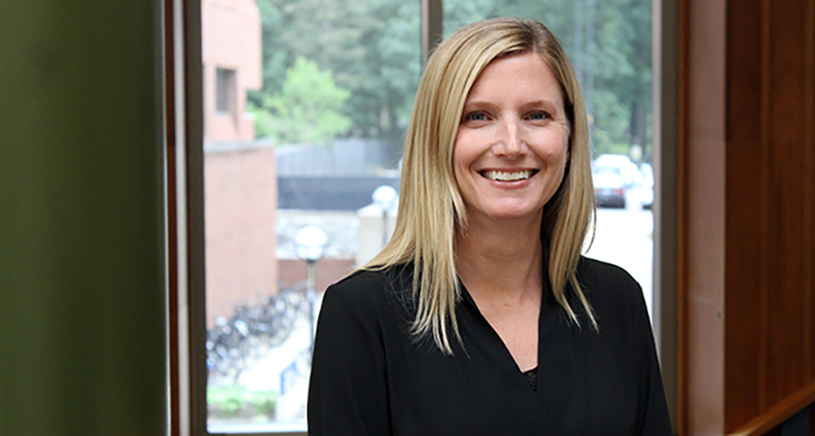
PUBHLTH501: Developing Public Health Solutions
- Graduate level
- Residential
- Winter term(s) for residential students;
- 6 credit hour(s) for residential students;
- Instructor(s): Sharon Kardia (Residential);
- Prerequisites: NONE
- Advisory Prerequisites: NONE
- Description: How do we decide what form of intervention might best address a given public health issue? How do we develop a plan to advocate for a public health intervention? In this course, you will build on your investigation of your team’s public health issue during the fall semester to consider how to develop a culturally-sensitive and effective solution to their team’s problem, whether it be a behavioral, environmental, or policy-based intervention to promote health equity. You will additionally conduct formative research on the need for the intervention, consult key stakeholders and interprofessional experts, and create a plan to evaluate and advocate for their proposed intervention using theories and evidence-based strategies. Your learning will be supported by a series of formative assessments, including quizzes, reflections, case studies, and response papers. The semester’s work will culminate in each team completing a program plan, an authentic summative assessment that showcases students’ learning over the course of the semester.
- Learning Objectives: See syllabus

PUBHLTH503: Service Learning for Health Professionals
- Graduate level
- Residential
- Winter term(s) for residential students;
- 2 credit hour(s) for residential students;
- Instructor(s): Staff (Residential);
- Not offered 2024-2025
- Prerequisites: None
- Undergraduates are allowed to enroll in this course.
- Description: An interdisciplinary service-based course required for all pharmacy students and elective for students of other health science disciplines. Learning experiences will focus on social justice and professional responsibilities for civic engagement. Through class participation, reflection, and guided discussions, students will explore issues of health disparities, poverty, and the medically under-served. Students participate in community service in addition to regular classroom discussion sessions.
- This course is cross-listed with PHARM 503, SW 573, KINESLGY 581, MOVESCI 481.
PUBHLTH507: Social Determinants of Health and Health Communication
- Graduate level
- Residential
- Fall term(s) for residential students;
- 2 credit hour(s) for residential students;
- Instructor(s): William Lopez (Residential);
- Prerequisites: None
- Description: This course covers issues related to health, particularly social, economic, and political factors that contribute to health inequalities and the development of strategies that focus on communication as a means to raise awareness and enhance the capacity of individuals and communities to participate efforts to reduce inequalities in health.
- Learning Objectives: 1. Use written and oral methods of communication to describe public health concepts with a range of different publics; 2. Consider how the social determinants of health impact the work they do; 3. Use written and oral communication methods to describe the social determinants of health to a lay audience.
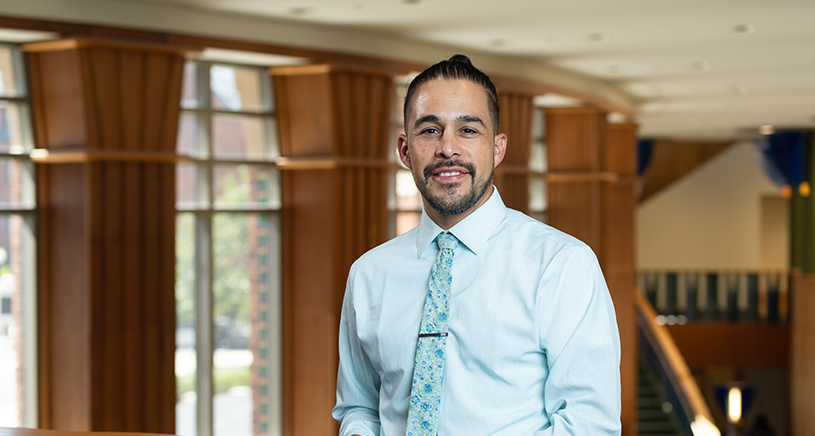
PUBHLTH508: Social Determinants of Health
- Graduate level
- Online MPH only
- This is a first year course for Online students
- Fall term(s) for online MPH students;
- 1 credit hour(s) for online MPH students;
- Instructor(s):
- Prerequisites: SPH MPH and SPH MHSA Residential Students Only or By Instructor Permission
- Description: This course is designed to increase students' awareness, knowledge, and understanding of issues related to behavioral, psychological, and structural factors that contribute to understanding population health and health inequities. We will discuss key roles of health professionals in ensuring equitable treatment at multiple levels of influence to enhance population health and reduce health inequities through opportunities to practice skill building using case studies, deliberative dialogues and active listening strategies. This course will have a hybrid style (online & in-class) of instruction.
- This course is required for the school-wide core curriculum
PUBHLTH510: Communication Fundamentals
- Graduate level
- Online MPH only
- This is a first year course for Online students
- Winter term(s) for online MPH students;
- 1 credit hour(s) for online MPH students;
- Instructor(s): Brian Zikmund-Fisher (Online MPH);
- Prerequisites: SPH MPH and SPH MHSA Residential Students Only or By Instructor Permission
- Description: This course will cover fundamental skills in how to communicate science and health information clearly to both scientific and non-scientific audiences. This course uses a blended format combining in-person sessions and online tasks to maximize students' ability to practice these skills.
- This course is required for the school-wide core curriculum


PUBHLTH511: Nutrition and Public Health
- Graduate level
- Both Residential and Online MPH
- This is a second year course for Online students
- Fall, Winter term(s) for residential students; Fall term(s) for online MPH students;
- 2 credit hour(s) for residential students; 2 credit hour(s) for online MPH students;
- Instructor(s): Liz Hudson (Residential); Liz Hudson (Online MPH);
- Prerequisites: SPH MPH and SPH MHSA Residential Students Only or By Instructor Permission
- Description: Introduce MPH students to important topics in nutrition and public health, program planning and program evaluation. PUBHLTH511 is an introductory course to nutrition research and will cover topics, such as healthful diet patterns, methods of dietary assessment, nutritional epidemiology, nutrition through the life cycle, and nutritional needs of diverse populations. This course will have a hybrid style (online & in-class) of instruction.
- Learning Objectives: Students will be able to: 1) apply nutrition indicators for different public health purposes, including: estimating prevalence, monitoring and surveillance, and investigating diet and disease relationships, identifying at-risk individuals and groups, and evaluating programs; 2) apply public health conceptual frameworks and nutrition research evidence to inform public health actions; 3) use evidence-based knowledge to develop nutrition programs and interventions for diverse populations; and 4) develop appropriate designs to rigorously monitor and evaluate nutrition programs and policies in diverse contexts.
- This course is required for the school-wide core curriculum
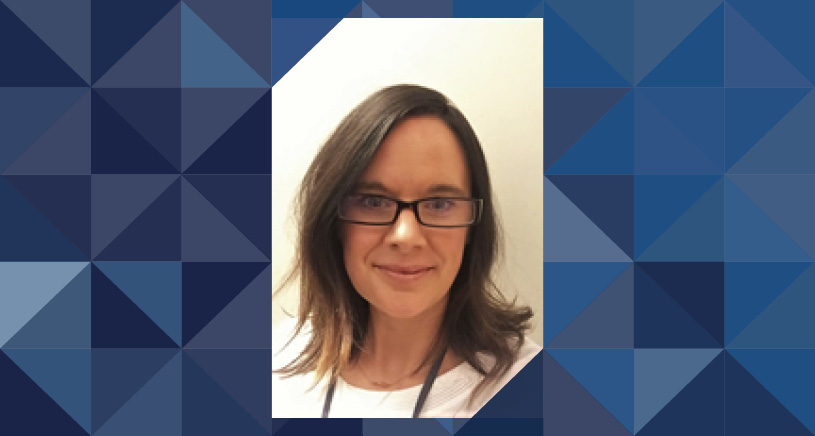
| Department | Program | Degree | Competency | Specific course(s) that allow assessment | Population and Health Sciences | MPH | Design multisector collaborations that will support all phases of population health improvement (assessment, planning, implementation, evaluation) | PUBHLTH515, HBEHED590, HBEHED591, PUBHLTH511 | Population and Health Sciences | MPH | Recommend evidence-based interventions that engage broad and diverse community stakeholders for population health improvement | PUBHLTH515, EPID591, NUTR597, PUBHLTH511 |
|---|
PUBHLTH512: Principles of Epidemiology for Public Health
- Graduate level
- Both Residential and Online MPH
- This is a first year course for Online students
- Fall, Winter term(s) for residential students; Fall term(s) for online MPH students;
- 3 credit hour(s) for residential students; 3 credit hour(s) for online MPH students;
- Instructor(s): Alison Mondul, Elizabeth Levin-Sparenberg, (Residential); Carrie Karvonen-Gutierrez, C. Leigh Pearce, (Online MPH);
- Prerequisites: SPH MPH and SPH MHSA Residential Students Only or By Instructor Permission
- Advisory Prerequisites: BIOSTAT 501 or equivalent course
- Undergraduates are allowed to enroll in this course.
- Description: This course provides a foundation to the principles of epidemiology for applications to public health. This introductory epidemiology course is for students who are NOT pursuing an Epidemiology MPH. The course will overview the fundamental concepts of epidemiology including measures of frequency and association, study design, data collection and interpretation. This course will have a hybrid style (online & in-class) of instruction.
- This course is required for the school-wide core curriculum

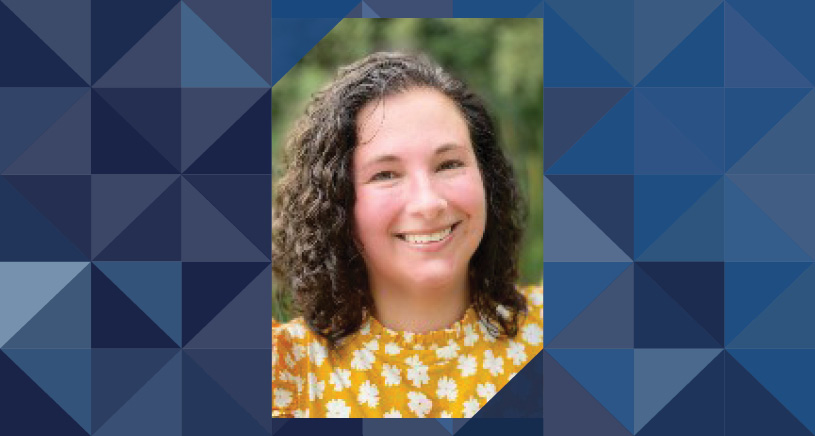


| Department | Program | Degree | Competency | Specific course(s) that allow assessment | EHS | Industrial Hygiene | MS | Analyze, interpret, and apply statistical and epidemiological data | PUBHLTH512, EPID601, Thesis |
|---|
PUBHLTH513: Public Health Systems, Policy and Management
- Graduate level
- Both Residential and Online MPH
- This is a first year course for Online students
- Winter term(s) for residential students; Winter term(s) for online MPH students;
- 3 credit hour(s) for residential students; 3 credit hour(s) for online MPH students;
- Instructor(s): Michael Rubyan, Sheela Kennedy, (Residential); Michael Rubyan (Online MPH);
- Prerequisites: SPH MPH Students Only
- Description: This course will introduce students to the public health system, public health policy development, and fundamental management concepts for managing public health organizations. Topics covered include organization, financing and history of public health, public health policy-making, advocacy, and basic principles of finance and human resource management in public health organizations.
- Learning Objectives: (1) Students should be able to describe how public health and health care are organized and financed in the United States. (2) Students should be able to provide a brief history of public health. (3) Students should be able to explain key aspects of health care reform. (4) Students should be able to describe the core functions of public health and the 10 Essential Services. (5) Students should be able to describe the importance of financial and human resource management in public health and health care organizations (6) Students should be able to apply negotiation and mediation skills to address interpersonal and interorganizational challenges. (7) Students should be able to discuss the format and use of different types of budgets, prepare simple operating budgets and conduct variance analysis. (8) Students should be able to discuss the public health policy-making process. (9) Students should be able to describe the role of ethics in policy making. (10) Students should be able to advocate for political, social or economic policies and programs that will improve health in diverse populations. (11) Students should be able to propose strategies to identify stakeholders and build coalitions and partnerships for influencing public health outcomes. (12) Students should be able to write and deliver effective testimony.
- This course is required for the school-wide core curriculum
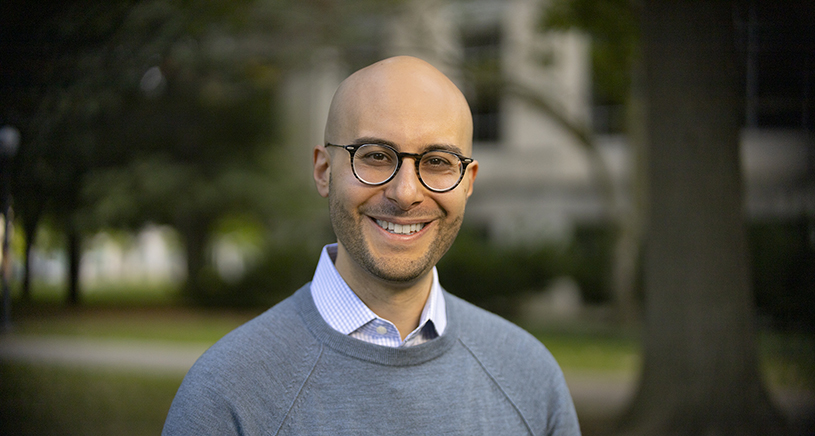
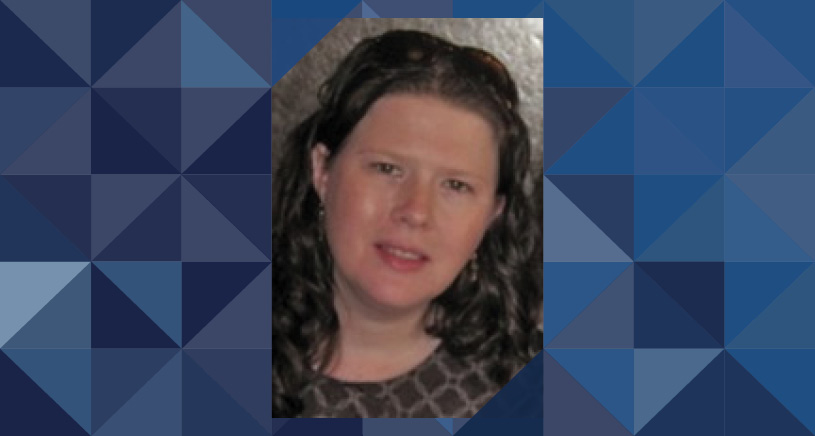
PUBHLTH514: Public Health Sciences and the Environment
- Graduate level
- Both Residential and Online MPH
- This is a first year course for Online students
- Winter term(s) for residential students; Winter term(s) for online MPH students;
- 2 credit hour(s) for residential students; 2 credit hour(s) for online MPH students;
- Instructor(s): Richard Neitzel (Residential); Richard Neitzel (Online MPH);
- Prerequisites: MPH, MHI, or MHSA Residential Students Only or By Instructor Permission
- Description: Many public health outcomes are directly influenced by human contact with the environment. This course will explore an important discipline within public health, environmental health sciences- that is, the study of how environmental factors affect human health and disease. We will apply environmental health and systems thinking principles to evaluate several major threats to public health: climate change, the built environment, and environmental justice issues. We will also assess the effectiveness of policies designed to address and reduce the threats presented by these and other issues.
- Learning Objectives: After completion of the course, students should be able to: --Explain the critical importance of evidence in advancing public health knowledge (CEPH LO 6)--Explain effects of environmental factors on a population's health (CEPH LO 7, linked to competency M1, CEPH C15) --Explain how globalization affects global burdens of disease (CEPH LO 11, linked to competency CEPH C22) --Apply process mapping methods to systematically evaluate the generation and movement of environmental hazards on the public (linked to competency CEPH C22) --Explain the impact of pollution control policies on public health outcomes (linked to competency CEPH C15) --Explain how environmental and occupational exposures can be measured and connected to human health (linked to competency M1) --Explain why a focus on sensitive and vulnerable groups is critical in environmental health science (linked to competency CEPH C15) --Explain strategies that can be applied to reduce environmental and occupational hazards
- This course is required for the school-wide core curriculum

PUBHLTH515: Population Health
- Graduate level
- Online MPH only
- This is a second year course for Online students
- Winter term(s) for online MPH students;
- 3 credit hour(s) for online MPH students;
- Instructor(s): Sharon Kardia (Online MPH);
- Prerequisites: Biostat501 or higher, PubHlth 512 or higher
- Advisory Prerequisites: Pubhlth511
- Description: This course is intended to serve as an introduction to population health from both the vantage point of both public health and healthcare. We will examine the key components of community health needs assessments, how they are used, and how to compare population health assessments across subpopulations and time. We will also explore the epidemiological sources and criteria by which to select high quality data sources to estimate population health indicators and to select evidence-based interventions to improve population health. Finally, we will design of multisector collaborations that support the phases of population health improvement. As a survey of the population health, the course provides an overview for students wishing no more than an introduction to the field, as well as good grounding for students who wish to pursue additional coursework in population health.
- Learning Objectives: 1. Explain differences between population health assessments for public health and healthcare. 2. Understand the key components of community health needs assessments (CHNA). 3. Analyze how public health and healthcare will use a CHNA to improve population health. 4. Estimate key population health indicators for social determinants of health, chronic disease outcomes, and opioid abuse. 5. Categorize data sources by epidemiologic criteria. 6. Analyze differences between subpopulations and across time trends. 7. Design multisector collaborations that support population health improvement. 8. Outline a plan for population health improvement. 9. Recommend evidence-based interventions based on epidemiologic criteria and community suitability.

| Department | Program | Degree | Competency | Specific course(s) that allow assessment | Population and Health Sciences | MPH | Analyze the focus and function of population health assessments between public health and health care systems across local, state, and national settings | PUBHLTH515 | Population and Health Sciences | MPH | Compare population health indicators across subpopulations, time, and data sources | PUBHLTH515, BIOSTAT592, EPID590, EPID592, EPID643, BIOSTAT595, BIOSTAT501 | Population and Health Sciences | MPH | Estimate population health indicators from high quality data resources from diverse sources | PUBHLTH515, EPID643, NUTR590, BIOSTAT592, BIOSTAT501 | Population and Health Sciences | MPH | Design multisector collaborations that will support all phases of population health improvement (assessment, planning, implementation, evaluation) | PUBHLTH515, HBEHED590, HBEHED591, PUBHLTH511 | Population and Health Sciences | MPH | Recommend evidence-based interventions that engage broad and diverse community stakeholders for population health improvement | PUBHLTH515, EPID591, NUTR597, PUBHLTH511 |
|---|
PUBHLTH516: Leadership Skills For Interprofessional Practice
- Graduate level
- Both Residential and Online MPH
- This is a second year course for Online students
- Winter term(s) for residential students; Winter term(s) for online MPH students;
- 1 credit hour(s) for residential students; 1 credit hour(s) for online MPH students;
- Instructor(s): Laura Power (Residential);
- Prerequisites: None
- Undergraduates are allowed to enroll in this course.
- Description: PUBHLTH 516 is an accelerated 7-week course that highlights foundational leadership skills needed by public health professionals to effectively work in interprofessional teams. Course themes include self-reflection on leadership style, growth mindset, fostering collaboration, motivating teams to accomplish goals, leading change, and guiding decision making.
- Learning Objectives: Students should be able to: 1. Identify their leadership style. 2. Explain the importance of active learning and resilience in strengthening leadership skills. 3. Understand leadership structures across health sectors and the roles of public health professionals in leading change. 4. Describe the key domains of interprofessional practice. 5. Develop a mission, vision, and values to guide the work of teams. 6. Describe strategies to foster collaboration among interprofessional groups. 7. Compare strategies for motivating and influencing teams to accomplish goals. 8. Explain the relationship between leadership and learning through growth mindset principles. 9. Describe how interpersonal agility inspires risk-taking and collaboration.
- Residential Syllabus for PUBHLTH516
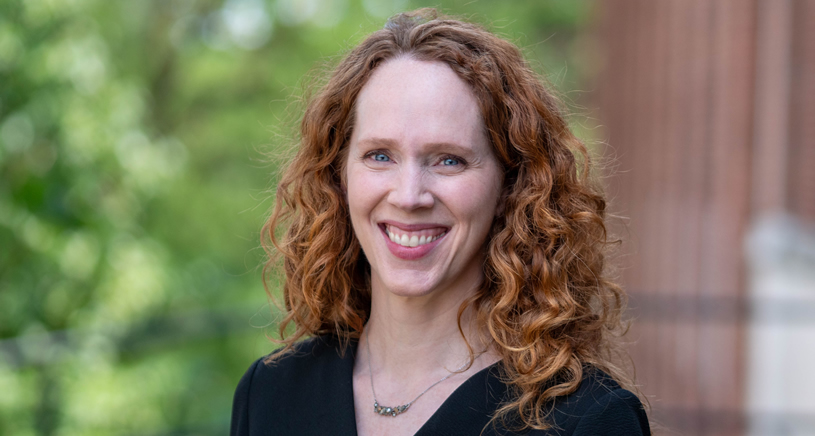
PUBHLTH554: Applications in Global Public Health
- Graduate level
- Residential
- Winter term(s) for residential students;
- 3 credit hour(s) for residential students;
- Instructor(s):
- Prerequisites: School of Public Health Graduate Student
- Description: This course is intended to serve as an introduction to the major issues of global public health through an investigation of global public health data sources and primary literature. Students will learn to aggregate available information convey public health data in a concise and meaningful format.
PUBHLTH555: Chatgpt/AI And Public Health
- Graduate level
- Residential
- Fall, Winter term(s) for residential students;
- 1-2 credit hour(s) for residential students;
- Instructor(s): Sharon Kardia (Residential);
- Prerequisites: none
- Advisory Prerequisites: NA
- Undergraduates are allowed to enroll in this course.
- Description: In this seminar course, we will explore the challenges and opportunities for advancing public health values and goals through artificial general intelligence (AGI) platforms, such as chatGPT. Students will select a key area of interest, develop a plan, document their exploration/results, and present their findings in a collective public forum.
- Learning Objectives: -Articulate human values that drive public health mission and describe the ways in which AI tools could undermine them -Identify the unique challenges and opportunities GAI technology poses -Apply critical AI literacy, critical thinking, and systems thinking to a public issue -Use critical AI literacy to develop best practices for incorporating AI into public health work

PUBHLTH580: Leadership & Management In Today's Health Care Environment
- Graduate level
- Residential
- Winter term(s) for residential students;
- 1 credit hour(s) for residential students;
- Instructor(s): Staff (Residential);
- Prerequisites: Graduate public health student
- Description: In this course students will explore the goals, evaluation, and leadership opportunities and challenges in the delivery of health care today. This course will offer students an opportunity to reflect on their own leadership style and professional goals, with the guidance of an instructor and guest lecturers with long, diverse careers in public health, healthcare, and consulting settings.
- Learning Objectives: Upon completion of the course, students should be able to: 1. Have an understanding of the leadership/clinical management needs and structures of complex Health Care Organizations. 2. Have an understanding of the differences and similarities between management and leadership. 3. Have an understanding of the critical roles of collaboration between administrators and healthcare providers: physicians, nurses and others. 4. Have an enhanced insight into career pathways and enhanced professional skills to successfully enter the workforce.
PUBHLTH615: Public Health in Action: National
- Graduate level
- Residential
- Winter term(s) for residential students;
- 2 credit hour(s) for residential students;
- Instructor(s): Staff (Residential);
- Prerequisites: Permission of Instructor
- Undergraduates are allowed to enroll in this course.
- Description: An intensive course to prepare students for a culminating week-long practice-based experience designed to address existing and emerging public health priorities as defined by the respective communities and their academic partners. Students will be engaged directly with communities and exposed to the contextual, cultural, political and economic factors impacting health.
PUBHLTH616: Public Health in Action: International
- Graduate level
- Residential
- Winter term(s) for residential students;
- 2 credit hour(s) for residential students;
- Instructor(s): Staff (Residential);
- Prerequisites: Permission by Instructor
- Description: An intensive course to prepare students for a culminating week-long international practice-based experience designed to address existing and emerging public health priorities as defined by the respective communities and their academic partners. Students will be engaged directly and exposed to the contextual, cultural, political and economic factors impacting health.
PUBHLTH622: Entrepreneurship and Innovation in Public Health: New Business Models for a public health economy
- Graduate level
- Residential
- Winter term(s) for residential students;
- 1 credit hour(s) for residential students;
- Instructor(s):
- Not offered 2024-2025
- Prerequisites: none
- Undergraduates are allowed to enroll in this course.
- Description: This course builds on the premise that in order to improve the public's health, we need to create a new economy - a public health economy. To develop new business models for improving public health we need to understand the role innovation plays in business generally and startup culture specifically.
PUBHLTH626: Understanding And Improving The U S Healthcare System
- Graduate level
- Residential
- Fall term(s) for residential students;
- 1 credit hour(s) for residential students;
- Instructor(s): Adrienne Lapidos (Residential);
- Prerequisites: None
- Advisory Prerequisites: N/A
- Undergraduates are allowed to enroll in this course.
- Description: Provides an asynchronous, engaging, and interactive way to understand the U.S. healthcare system, with a focus on health policy. This online course requires viewing of videos and asynchronous interprofessional discussion board activities, with optional attendance at synchronous discussions each week.
PUBHLTH680: Applied Practice and Integrative Experience I
- Graduate level
- Online MPH only
- This is a second year course for Online students
- Fall term(s) for online MPH students;
- 2 credit hour(s) for online MPH students;
- Instructor(s): Elizabeth Levin-Sparenberg, Melissa Beck, (Online MPH);
- Prerequisites: PubHlth 512, Biostats 501
- Description: Students will launch their integrated learning experience, which involves addressing an applied health problem and presenting their work in a professional communication format, synthesizing competencies they achieved throughout the program. Students will partner with community organizations in the Real-World Writing Project to develop two products, fulfilling the program’s APEx requirements.
- Learning Objectives: At the end of this fall-semester course, students should: - have started their integrated learning experience and capstone product, the culmination of their experiences and learning in the MPH program. - have written something for the real world of public health that achieves a specific purpose and that is appropriate for a specific audience, and is written in a particular style. - have further developed their composing process through reflection, discussion and trying new approaches. - have gained experience collaborating with their peers and have connected these collaborative activities to public health practices. - be able to identify and/or create effective written and oral arguments within each of the communication formats we cover in the course. - explain the critical importance of evidence in advancing public health knowledge.
- Residential Syllabus for PUBHLTH680
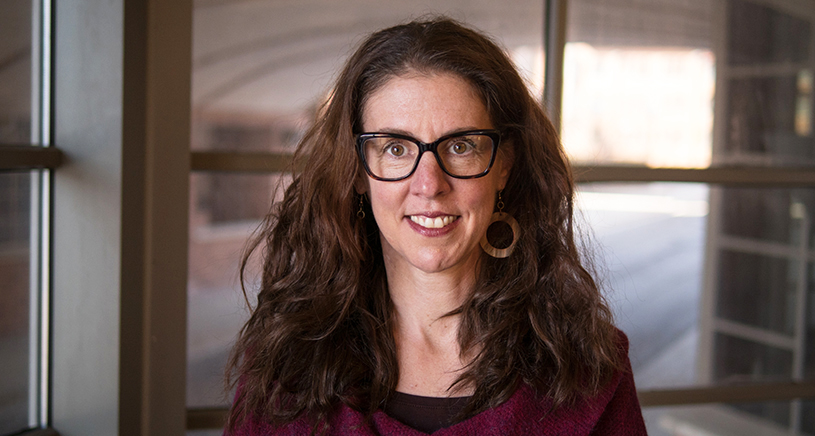


PUBHLTH741: Interdisciplinary Problem Solving
- Graduate level
- Residential
- Fall, Winter term(s) for residential students;
- 1-3 credit hour(s) for residential students;
- Instructor(s): Staff (Residential);
- Prerequisites: none
- Advisory Prerequisites: graduate standing
- Description: "Interdisciplinary Problem Solving" is a course offered at the Law School through the Problem Solving Initiative (PSI). Through a team-based, experiential, and interdisciplinary learning model, small groups of U-M graduate and professional students work with faculty to explore and offer solutions to emerging, complex problems.
- Learning Objectives: Will vary term to term
- This course is cross-listed with LAW741/PUBPOL710/SW741 in the Law School, Public Policy, Social Work department.
PUBHLTH796: Special Topics in Public Health
- Graduate level
- Residential
- Fall, Winter, Spring-Summer term(s) for residential students;
- 1-5 credit hour(s) for residential students;
- Instructor(s): Staff (Residential);
- Prerequisites: none
- Description: This course will be used by faculty members to teach special or emerging topics related to Public Health. The specific material and format will vary by semester and instructor.
- Learning Objectives: Will vary by topic and instructor.
